Co-Located Conference AgendasInnovations in Flow Cytometry & Extracellular Vesicles 2024 | Lab-on-a-Chip and Microfluidics World Congress 2024 | Organoids, Spheroids & Organs-on-Chips 2024 | 

Monday, 18 November 202409:00 | Microfluidics and Nanofluidics for Diagnostic Tests Pre-Conference Training Course
Steve Soper, Foundation Distinguished Professor, Director, Center of BioModular Multi-Scale System for Precision Medicine, The University of Kansas, United States of America
Runs from 09:00-11:00 Venue: Slate Room
[Separate Registration Required to Attend this Pre-Conference Training Course]
| 11:00 | Pre-Conference Training Course from 11:00-13:00 Microfluidic Product Development [Separate Registration Required to Attend this Pre-Conference Training Course]
Leanna Levine, Founder & CEO, ALine, Inc., United States of America
This training course will explore the translation of science and nascent
engineering programs into a well-structured product development program
to address Reduction to Practice or proof of concept; Human factors
engineering – what is it and why it matters; Design Control and Risk
Control Roadmap for Development; Design for Manufacture and Assembly;
Scale -up progression and manufacturing methods.
**A Must-Attend for Companies Embarking on Microfluidic Product Development** | 13:00 | Main Conference Registration, Materials Pick-Up and Networking in the Exhibit Hall | |
Session Title: Lab-on-a-Chip and Microfluidics World Congress 2024 -- Opening Plenary Session |
| | |
Venue: Plenary Ballroom |
| | 13:45 | Welcome and Introduction by the Chairs: Professor Dino Di Carlo and Dr. Leanna Levine, 2024 Conference Focus and Themes Highlighted Over the 3-Day Event | 14:00 | View Agenda of the Plenary Session from 14:00-18:45 on LOAC Track Agenda | 18:45 | Networking Reception in the Exhibit Hall with Beer, Wine and Dinner. Network with Colleagues, Engage with the Exhibitors, Colleagues and View Posters | 20:15 | Close of Day 1 of the Main Conference | 20:30 | 3D-Printing of Microfluidics Training Course Presented by Professor Noah Malmstadt
Noah Malmstadt, Professor, Mork Family Dept. of Chemical Engineering & Materials Science, University of Southern California, United States of America
Runs from 20:30-22:30 Venue: Slate Room
[Separate Registration Required to Attend this Training Course]
|
Tuesday, 19 November 202407:30 | Morning Coffee, Continental Breakfast and Networking in the Exhibit Hall | 08:45 | For Programming Details for Morning Sessions -- Please Agenda in LOAC Track and Organoids Track | 12:30 | Networking Buffet Luncheon -- Network with Exhibitors and Colleagues, View Posters | 13:20 | 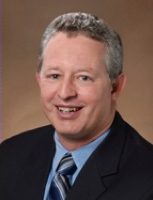 | Conference Chair Session Title: Single Cell Analysis and EV Research via Flow Cytometry
Michael Graner, Professor, Dept of Neurosurgery, University of Colorado Anschutz School of Medicine, United States of America
|
| |
Venue: Ballroom B |
| | 13:30 | 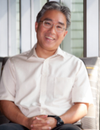 | Keynote Presentation High-Resolution Analysis of Single Extracellular Vesicles and Particles with Digital Flow Cytometry
Daniel Chiu, A. Bruce Montgomery Professor of Chemistry, University of Washington, United States of America
We have developed a multi-parametric high-throughput flow-based method for the analysis of individual extracellular vesicles and particles (EVPs), and a super-resolution method for sizing individual EVPs in a high-throughput fashion. EVPs are highly heterogeneous and comprise a diverse set of surface protein markers as well as intra-vesicular cargoes. Yet, current approaches to the study of EVPs lack the necessary sensitivity and precision to fully characterize and understand the make-up and the distribution of various EV subpopulations that may be present. Digital flow cytometry (dFC) provides single-fluorophore sensitivity and enables multiparameter characterization of EVPs, including single-EVP phenotyping, the absolute quantitation of EVP concentrations, and biomarker copy numbers. dFC has a broad range of applications, from analysis of single EVPs such as exosomes or RNA-binding proteins to characterization of therapeutic lipid nanoparticles, viruses, and proteins. dFC also provides absolute quantitation of non-EVP samples such as dyes, beads, and Ab-dye conjugates. |
| 14:00 | 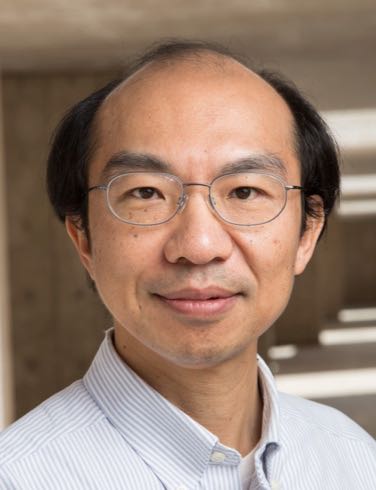 | Keynote Presentation AI Enabled 2D and 3D Image-Guided Cell Analyzers and Sorters
Yu-Hwa Lo, Professor, University of California San Diego, United States of America
Single cell analysis is playing an important role in biological and medical research. Flow cytometers and fluorescence-activated cell sorters (FACS) are workhorse for single cell analysis, offering high throughput and the ability of isolating cells of high interest, especially those rare cells or new cell types. On the other hand, microscopy, especially 3D microscopy, can produce high information contents, revealing important insight in cell phenotypes and high spatial information although cell isolation in a microscope platform with techniques such as laser microdissection is cumbersome and subject to cell damage. We present results of image-guided cell sorters that possess the merits of high throughput and high content imaging in a single system. The image-guided FACS system uses a microfluidic cartridge with an on-chip piezoelectric actuator to sort cells of interest into tubes or 384-well plates. The cell sorting criteria is based on the 2D images of cells, defined by either operator specified gating criteria or AI with or without human instructions. Going beyond the systems with 2D images, we further demonstrate flow cytometers that produce 3D fluorescent, scattering, and transmission images of each single cell at a throughput of 1000 cells/s, which is 1000-10,000 times faster than a fluorescent confocal microscope. The cell tomography offers far more information than 2D images and is more adaptive to AI and machine learning. Both the 2D and 3D image-guided cell analyzers and sorters are powered by artificial intelligence with convolutional neural networks. With AI capabilities based on semi-supervised learning, both systems have shown exceptional capabilities for classification and cell type discovery. Results from several experiments, including the diagnosis of leukemia and NASH diseases, DNA damage assessment, protein translocations under drug treatments, cell cycle detection, and cell fate prediction (the so-called Day Zero experiment) will be discussed in the presentation. |
| 14:30 | Beckman Coulter Technology Spotlight Presentation | 15:00 | Mid-Afternoon Coffee Break and Networking in the Exhibit Hall | 15:30 | 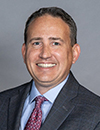 | Keynote Presentation A Microfluidic Serial Cytometer to Estimate Per-Cell Uncertainty and Single Object Kinetic Measurements
Gregory Cooksey, Project Leader, National Institute of Standards and Technology (NIST), United States of America
NIST has developed a serial microfluidic cytometer that repeats the interrogation of objects at multiple points along a flow path, which enables direct assessment of uncertainty in cytometry measurements (DiSalvo et al., Lab Chip 2022). We have achieved per-particle measurement variation below 2 % at throughputs above 100 s-1 and detection limits and dynamic range comparable to conventional cytometers. This presentation will introduce various measurement capabilities novel to our serial cytometry, including 1) uncertainty quantification, 2) signals analysis that permit estimation of velocity, size, and shape of samples, including elastically deformable particles and mitotic cells, and 3) tracking dynamics of individual objects over time. Utilizing microdroplets, we demonstrated temporal tracking of an enzymatic reaction on a per-droplet basis in real time. An upstream fluidic mixing system is also used to create known concentrations and dilutions of fluorophores in droplets, which permits direct calibration of measured fluorescence intensity to fluorophores in solution. |
| 16:00 |  Nanovials: Bridging Microfluidics with Flow Cytometry to Enable Functional Screening of Cells Nanovials: Bridging Microfluidics with Flow Cytometry to Enable Functional Screening of Cells
Joseph de Rutte, CEO and Co-Founder, Partillion Bioscience
In this talk, I will provide background on utilizing hydrogel microparticles in conjunction with flow cytometers to screen and isolate individual cells based on their functional properties, such as secretion. I will also expand on how this capability is being leveraged to accelerate antibody discovery workflows by screening antibody secreting cells directly based on antibody function (e.g. specificity, affinity, cell binding).
| 16:30 | 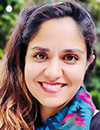 | Keynote Presentation Title to be Confirmed.
Leyla Esfandiari, Associate Professor of Biomedical Engineering, University of Cincinnati, United States of America
|
| 17:00 |  Title to be Confirmed. Title to be Confirmed.
Sven Rudolf Kreutel, Chief Executive Officer, Particle Metrix GmbH and CEO, Particle Metrix Inc., USA
| 17:30 |  Characterization of Extracellular Vesicles Using the ONI Nanoimager Super-Resolution Microscope Characterization of Extracellular Vesicles Using the ONI Nanoimager Super-Resolution Microscope
Alison Fujii, Field Application Scientist, ONI Inc.
This presentation will explore the characterization of extracellular vesicles (EVs) using the ONI Nanoimager's super-resolution capabilities. Key topics include the importance of EVs in biological research, the advanced imaging techniques of the ONI Nanoimager, and practical applications for detailed EV analysis. Attendees will learn how super-resolution microscopy can provide deeper insights into EV biology.
| 18:00 |  | Conference Chair Title to be Confirmed.
Terry Morgan, Professor of Pathology and Laboratory Medicine, Oregon Health and Science University, United States of America
|
| 18:30 | Networking Reception in the Exhibit Hall with Beer, Wine and Dinner. Network with Colleagues, Engage with the Exhibitors, Colleagues and View Posters | 20:15 | Close of Day 2 Main Conference Programming | 20:30 | Introduction to Microfluidics Training Course
Shuichi Takayama, Professor, Georgia Research Alliance Eminent Scholar, and Price Gilbert, Jr. Chair in Regenerative Engineering and Medicine Wallace H. Coulter Department of Biomedical Engineering, Georgia Institute of Technology & Emory University School of Medicine, United States of America
Runs from 20:30-22:30 Venue: Slate Room
[Separate Registration Required to Attend this Training Course]
|
Wednesday, 20 November 202407:30 | Morning Coffee, Continental Breakfast and Networking in the Exhibit Hall | |
Venue: Ballroom A |
| | 08:30 | Industry Breakout Round-Tables: Each Round-Table Moderated by an Industry Participant -- Delegates Engage with the Moderator to Discuss Commercialization Themes | 09:30 | For Morning Sessions -- See Agendas in LOAC Track and Organoids Track | |
Session Title: Exploring Further the Use of Flow Cytometry in the EV Space |
| | |
Venue: Ballroom B |
| | 10:00 |  | Keynote Presentation Title to be Confirmed.
John Nolan, CEO, Cellarcus Biosciences, Inc., United States of America
|
| 10:30 | 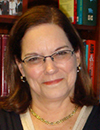 | Keynote Presentation Title to be Confirmed.
Lynn Pulliam, Professor of Laboratory Medicine and Medicine, University of California San Francisco, United States of America
Diagnosing neurocognitive disorders has been challenging and doing so without invasive and expensive procedures even more difficult. My lab has been interested in diagnosing chronic cognitive impairment in HIV infection and more recently longCOVID using neuronal-derived exosomes. The goal is to identify liquid biomarkers associated with cognitive impairment and follow these during and after treatment. In addition, studies may identify common and distinct processes in neurodegeneration that may help in drug interventions. Alternatively, exosomes can be used as therapeutic delivery vehicles. Implementing these strategies in the clinical laboratory is the goal and still a challenge. |
| 11:00 | Speaker to be Confirmed | 11:30 | Speaker to be Confirmed | 12:00 | Networking Buffet Luncheon -- Network with Exhibitors and Colleagues, View Posters | |
Poster Awards Venue: Ballroom A |
| | 14:00 | Poster Awards -- 3 Cash Awards Sponsored by the RSC and Lab-on-a-Chip Journal |
|


 Add to Calendar ▼2024-11-18 00:00:002024-11-20 00:00:00Europe/LondonInnovations in Flow Cytometry and Extracellular Vesicles 2024Innovations in Flow Cytometry and Extracellular Vesicles 2024 in Laguna Hills, CaliforniaLaguna Hills, CaliforniaSELECTBIOenquiries@selectbiosciences.com
Add to Calendar ▼2024-11-18 00:00:002024-11-20 00:00:00Europe/LondonInnovations in Flow Cytometry and Extracellular Vesicles 2024Innovations in Flow Cytometry and Extracellular Vesicles 2024 in Laguna Hills, CaliforniaLaguna Hills, CaliforniaSELECTBIOenquiries@selectbiosciences.com